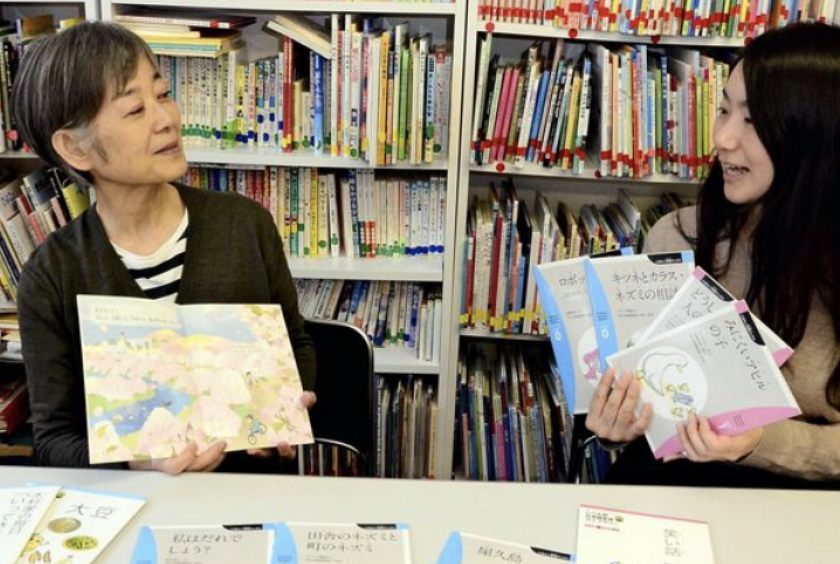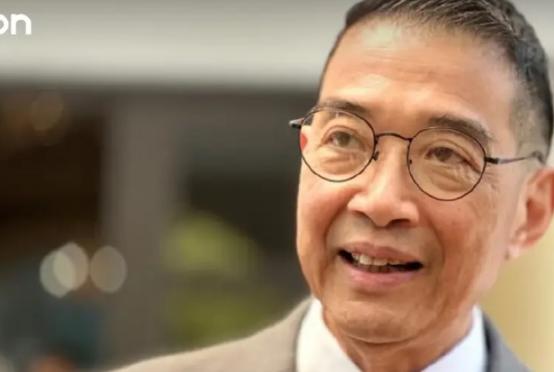
Tokyo (The Japan News) - With the revised Immigration Control and Refugee Recognition Law having come into effect on April 1, libraries as local cultural bases for foreign residents are being promoted to encourage them to learn Japanese.
One nonprofit organization, Tagengo Tadoku (Tadoku Supporters), provides Japanese-language lectures using the library’s collection to help such foreigners, who may not have had opportunities to use free libraries in their home countries.
“Foreigners need a lot of input [of Japanese words and information] to study Japanese. If given the opportunity to read books in these library collections, they will be able to adjust themselves more quickly to life and culture in Japan, and as a result their quality of life will improve,” said Makiko Awano, 61, vice chairman of the NPO.
The base of the NPO’s activities is the Okubo Library, which is located in the Okubo area of Shinjuku Ward, Tokyo, where foreigners account for about 40 percent of the ward’s population.
Twice a year, the NPO provides a lecture titled “Try to read books in easy Japanese?” for foreigners with low-level Japanese-language skills. The library’s collection of about 70,000 volumes provides the teaching materials.
Foreign residents from the Philippines, Vietnam, Nepal, Myanmar and other countries participated in the lecture in February. Using a learning method of extensive reading of children’s books and illustrated books in simple Japanese, they could easily acquire knowledge about the language and Japanese culture.
In a survey by the ward of foreigners living in Japan in 2015 when the NPO began these lectures, there were many responses saying “I am struggling, as I have no place to learn Japanese.”
Lecture participants on the other hand have shared such sentiments as “I became able to read the destinations of buses” or “I’m not afraid of the Japanese language anymore.”
From March, the NPO has also offered the lecture at a library in Ota Ward, Tokyo.
Libraries as a free resource
As of January this year, Tokyo had about 550,000 foreign residents, or about 20 percent of all foreigners living in the entire country.
It has been pointed out that the concentration of foreigners in Tokyo, where salaries are generally higher than in rural areas, will accelerate with the revised law permitting more foreign workers coming into effect. In response, libraries in Tokyo are improving their services for foreigners.
In this fiscal year, the Tokyo Metropolitan Library in Minato Ward launched an instructional program for foreign users that teaches how to use the search system for the library’s collection. From January, the library added to its collection the English version of Osamu Tezuka’s manga works, and the French version of “Berusayu no Bara” (the Rose of Versailles). It also plans to prepare many foreign-language books starting in fiscal 2019.
The Okubo Library, where the NPO is based, has foreign-language books in 23 languages. However, according to library Director Masao Yoneda, 54, there are many foreigners who have a misunderstanding that they have to pay money to read books at libraries.
For that reason, pamphlets of the Okubo Library stipulate that the service is provided free of charge, so as to invite more people to visit the facility.
“One of our challenges is to find a way to attract foreigners who are not accustomed to visiting libraries in their home countries,” Yoneda said.
http://the-japan-news.com/news/article/0005668534















